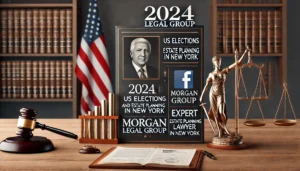Revocable Trust Or Will
Revocable living trusts are not difficult to set up and can be made without the assistance of an attorney. The trustee is the individual who will deal with the property. While the trust creator is alive, the trustee is generally the trust producer and afterward a replacement trustee takes over later the trust producer’s demise.
Later the trust record is made, the trust maker should move any property the person needs covered by the trust into the trust. For some things, this requires just including a rundown of property with the trust record. Nonetheless, named property should be retitled for the sake of the trust. This is typically not convoluted or troublesome, however it should be done effectively or the named property could wind up in probate. You can make a living trust, rapidly and effectively, with Trust programming.
You don’t need to be an attorney to earn enough to pay the rent trust. Assuming you have a genuinely direct circumstance and you are ready to invest the effort, you can make your own revocable living trust. Nonetheless, a few circumstances warrant seeing a legal counselor for help.
FAQ
- What is medicaid fraud?
Medicaid fraud is simply false information to get Medicaid to pay for all the services needed for yourself or someone else.
2. What is a pour-over will?
A pour-over Will is a Will written and document stating the actions needed to be done through the trustee which will be transferred to him or her. The truster is someone who’s responsible for many assets to be taken care of or sent to assigned beneficiaries.
3. When someone dies does their debt go away?
No, when someone dies, if that person had any debt, creditors will still ask for the money back adding more credit to the accounts. After designation of the persons assets during court, payment of debts will also be announced to whoever court would call responsible. So a family member, spouse or close friend will continue with paying everything you owe which is why you should make an estate plan to prevent this sort of conflict.
4. Does a trust protect assets from nursing home?
Yes, as long as you transfer funds towards your rent, mortgage or assistant living instead of going to a nursing home.
5. Does transfer on death avoid probate?
The transfer of death only makes the probate process much more difficult having you provide additional details and reason of the transfer. This makes the process longer and if it’s longer, it’ll be more expensive. The only way to avoid the probate is through a trust because everything would be set up or planned ahead, especially the transfer of death.
6. What does an elder care attorney do?
An elder care attorney has the expertise in arranging any necessary goals to whoever the elder being served needs. It can go along with not just estate planning but also medical care proxy’s, elder abuse or dealing with ownership of spousal belongings. This is all regards to any senior over the age of 50.
7. If my spouse dies do i get his social security and mine?
Because of the laws of Estate Planning, there’s something labeled, the surviving spouse clause where if one spouse dies, the surviving spouse gets his or her assets. The only assets not provided would be government funds that the spouse still owes or would actually lose the entire thing because of labeled ownership unless there’s a Will stating rights to owning these finances.
8. How do I know if my unemployment claim was approved in NY?
After applying for unemployment at the official NY government website, ny.gov, you should receive a letter towards your home address 2 weeks after applying stating how much unemployment you should be receive. Though that’s if you get approved. If not, you would receive the same letter in the same amount of time saying you’re ineligible due to certain dynamics in your life that the government won’t give you any benefits.
9. Do you need a lawyer for advance directives?
These forms can be created by yourself as long as your over the age of 18 but has the same disadvantages of handwriting your own Will. This meaning that advance directives shouldn’t be handwritten to prevent future fallacies due to not being able to read the file or putting information that has nothing to do with what’s needed. So you can make your own advance directives but it’s recommended to get a lawyer to guide you in the process.
10. Does a trust override a will?
No, a trust has different functions than a Will but a trust secures the Wills needs for whatever is listed.









